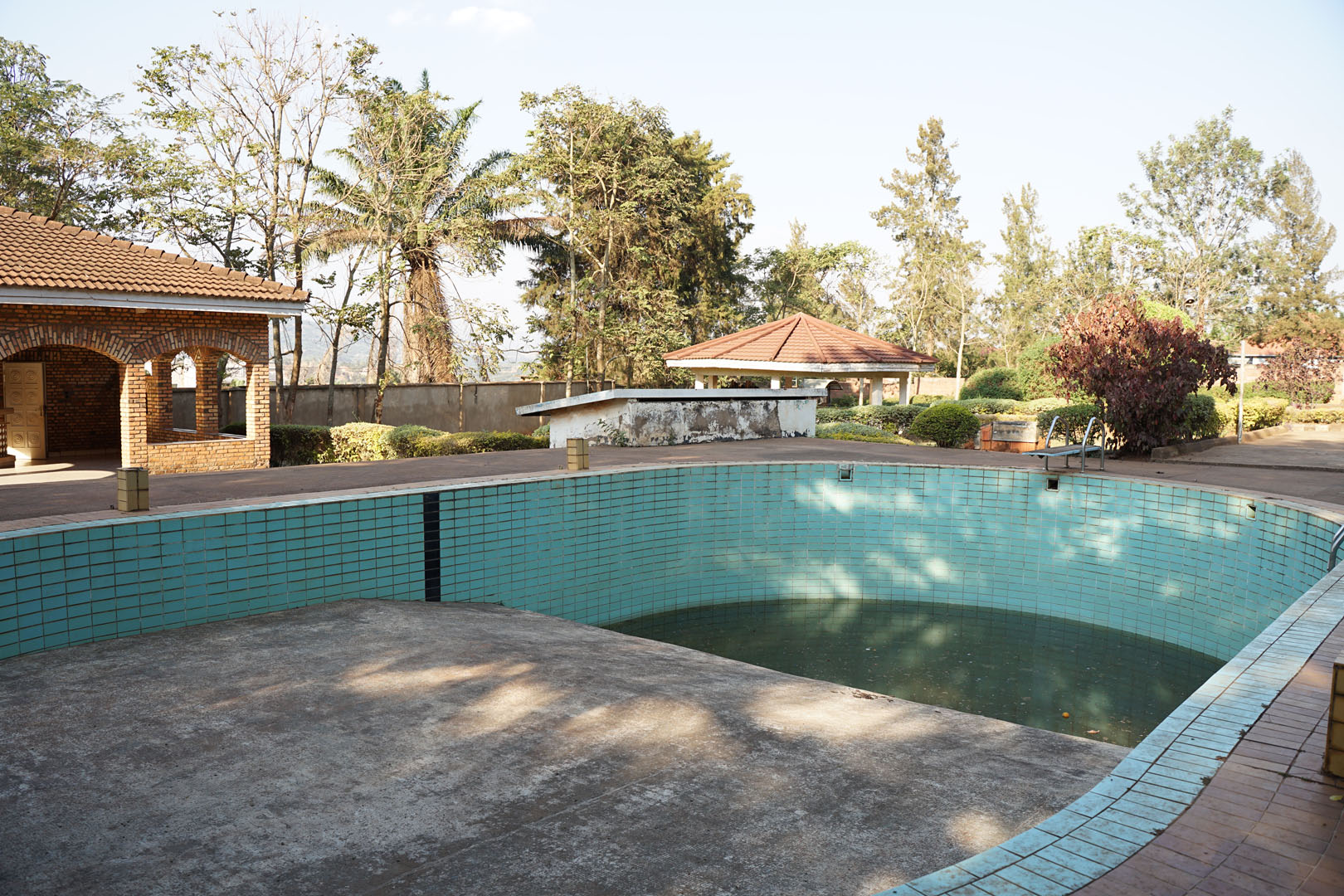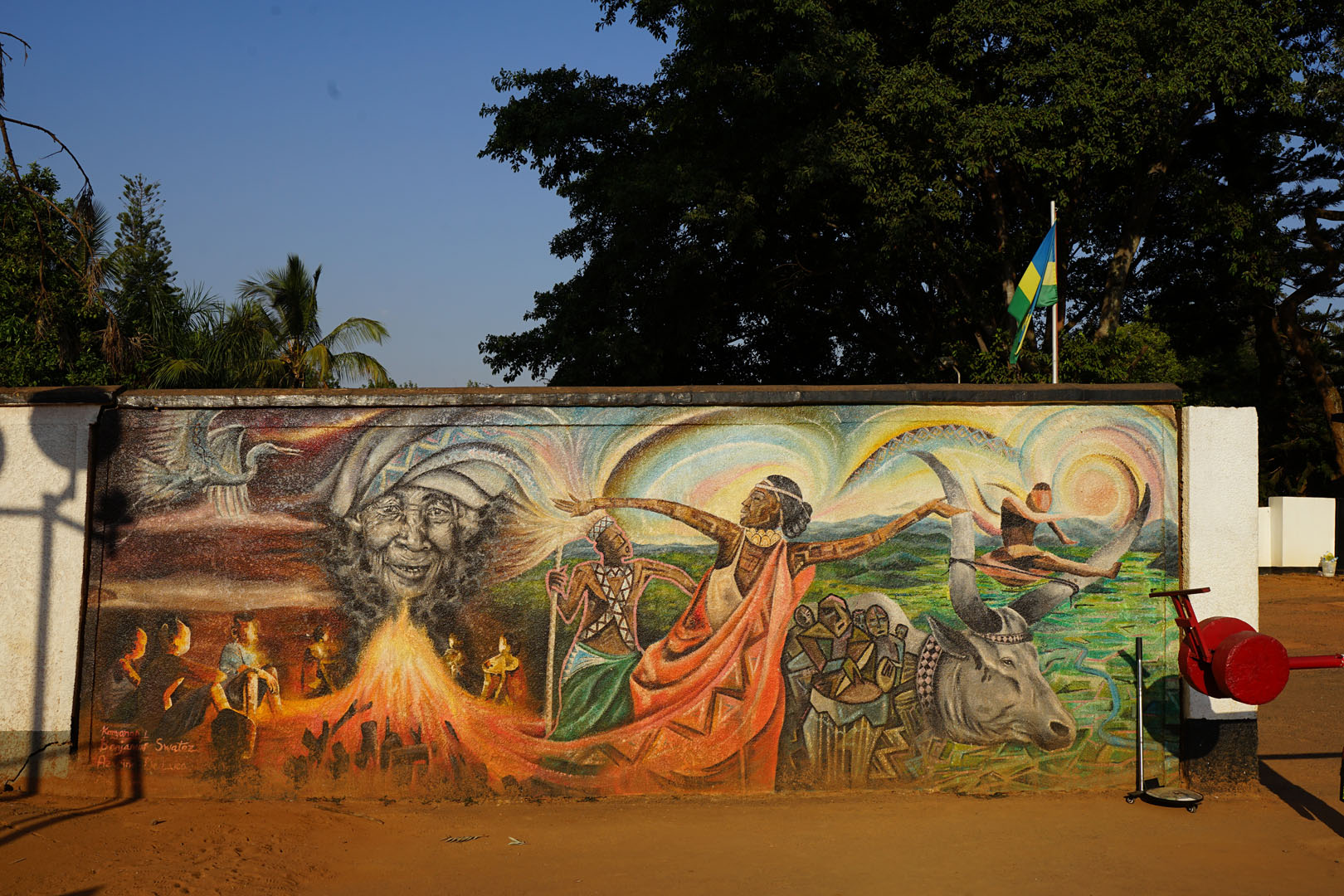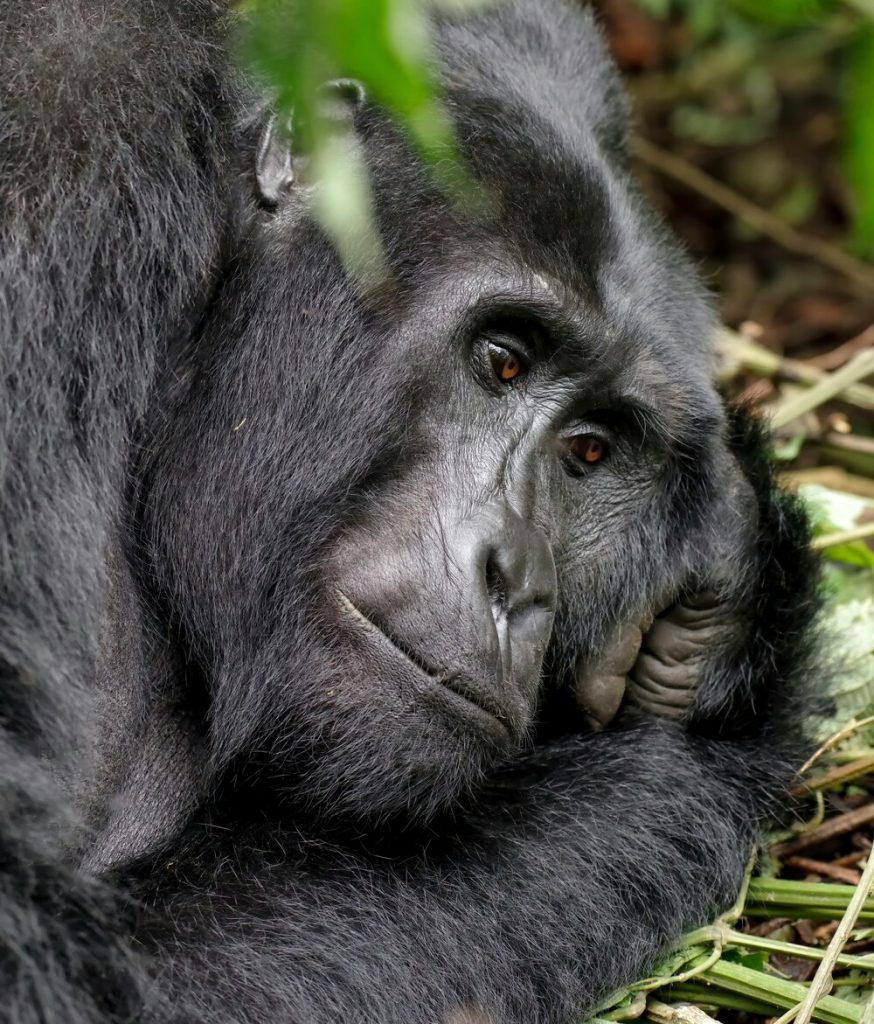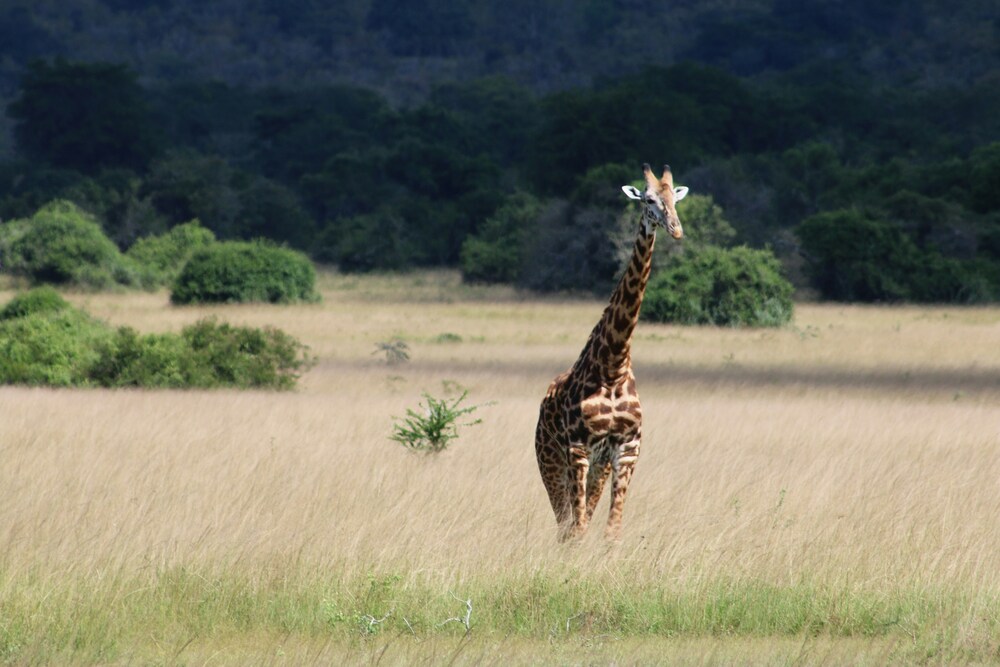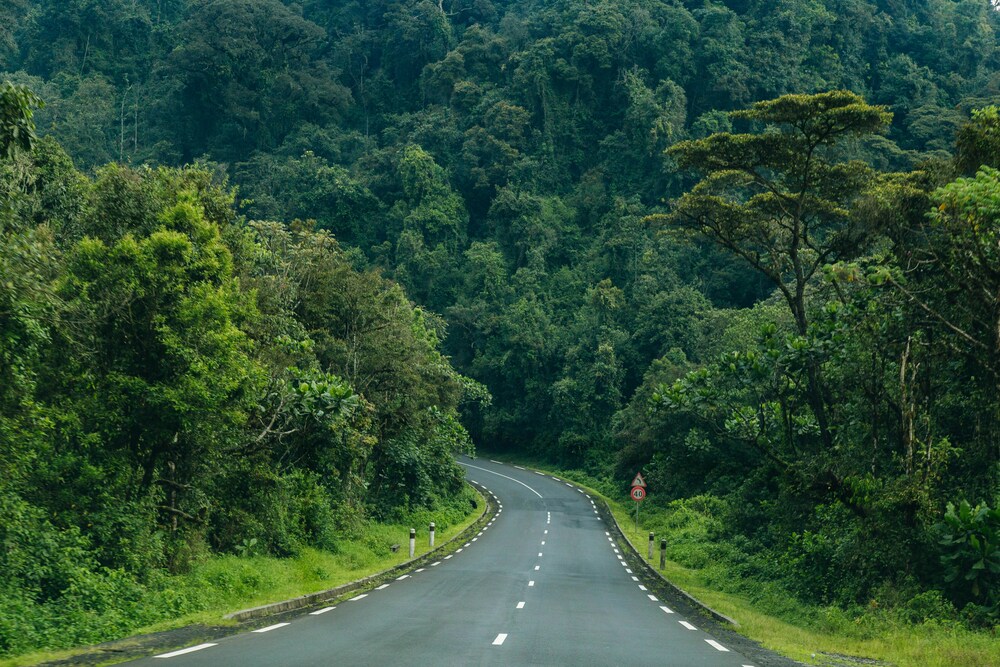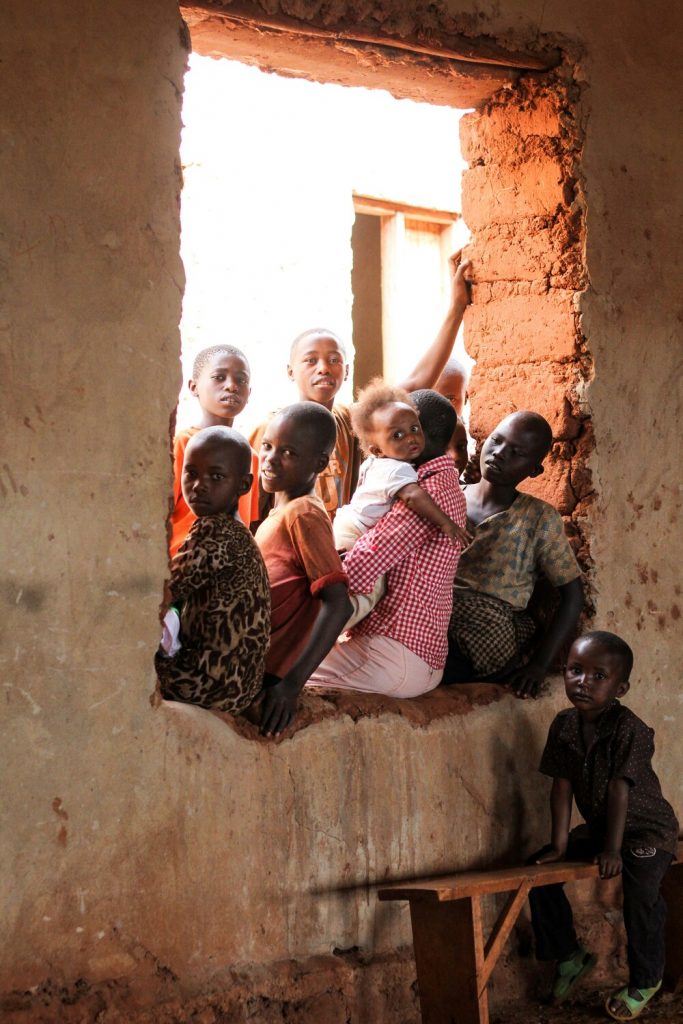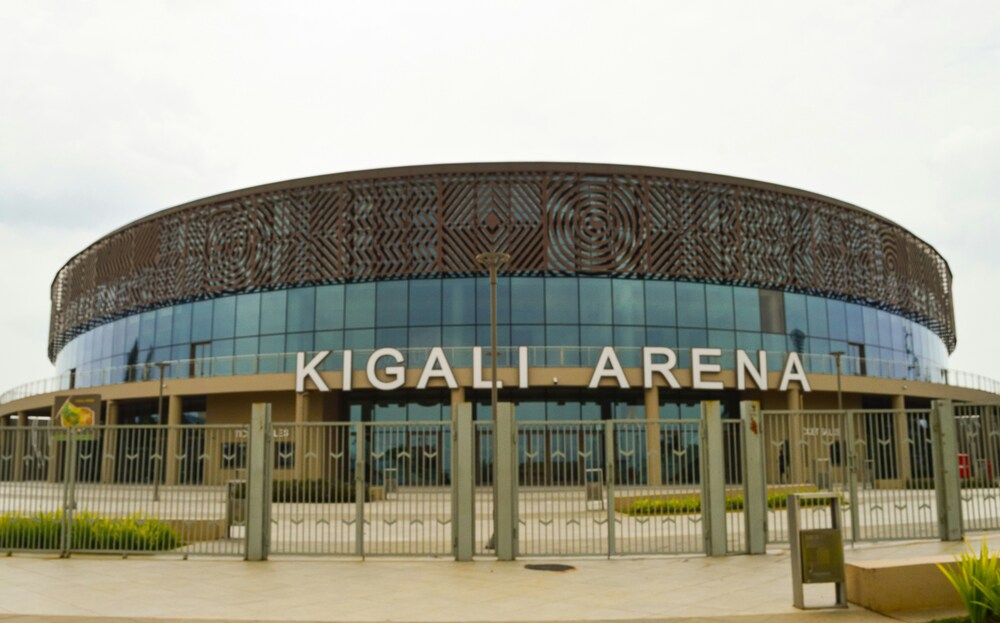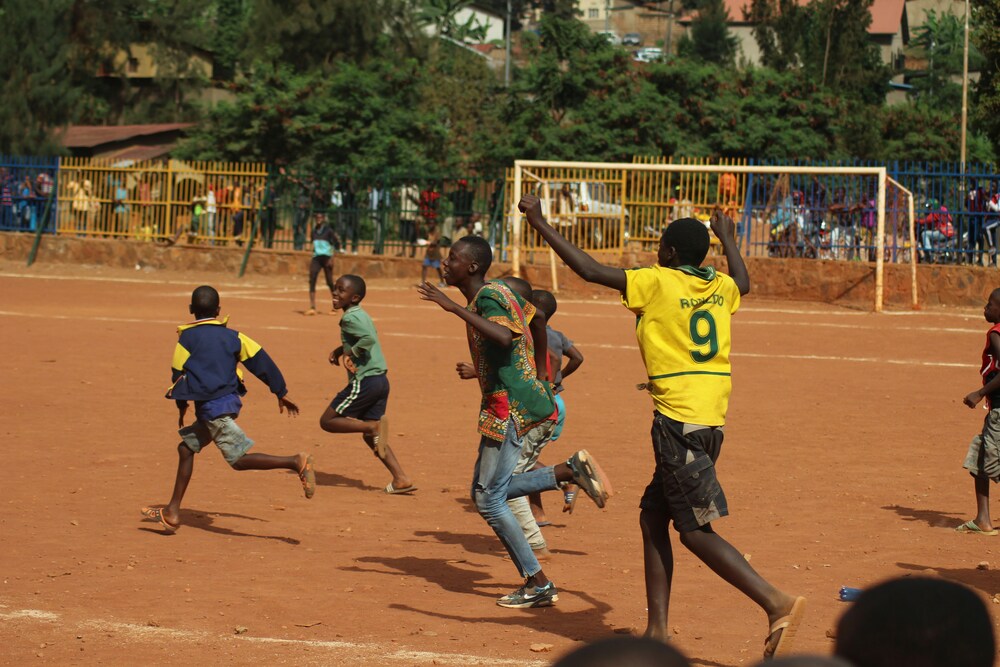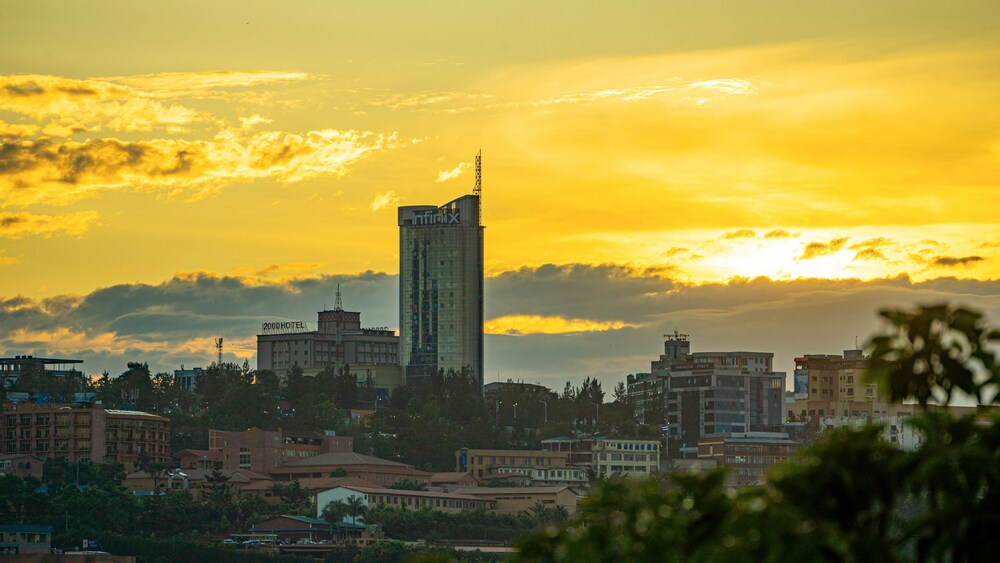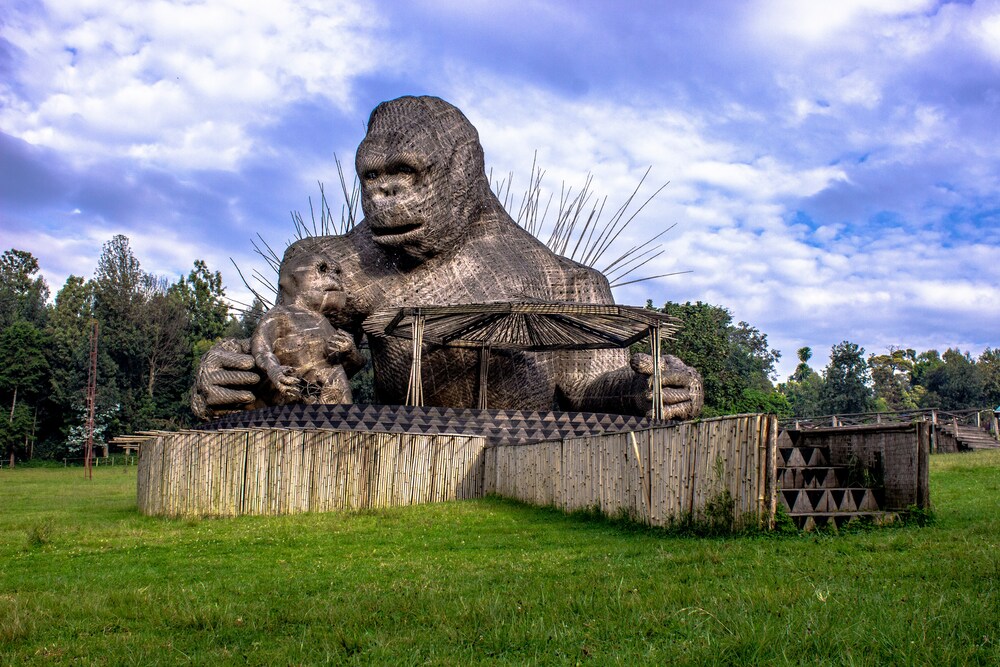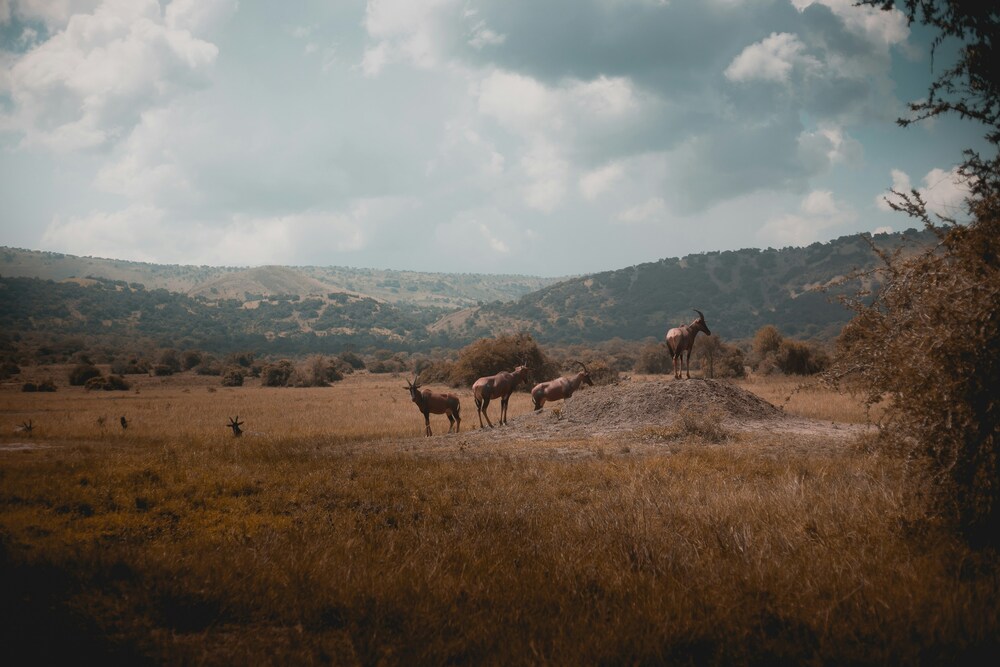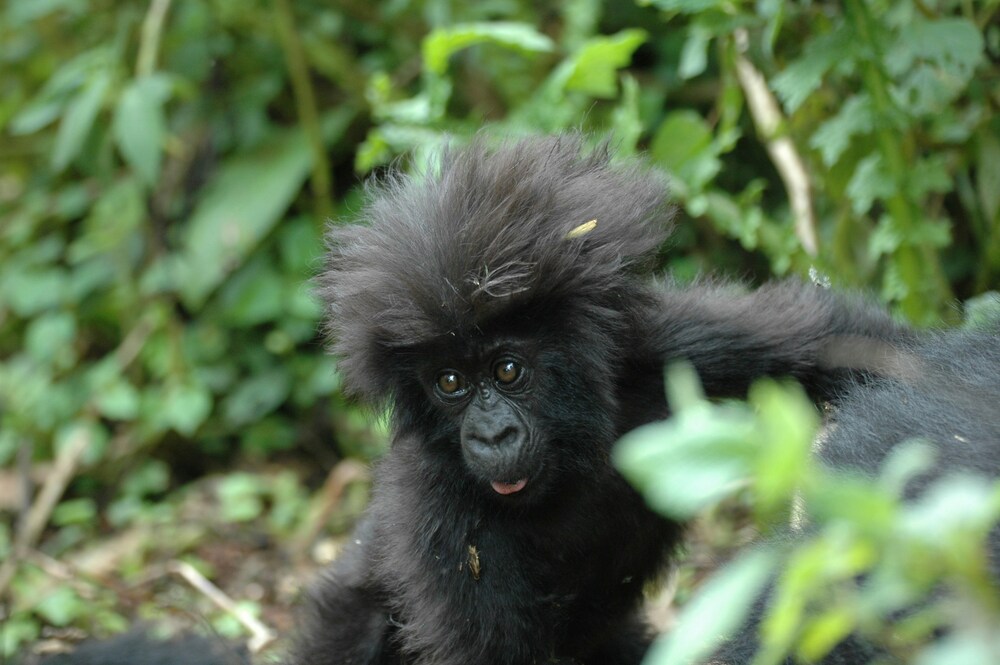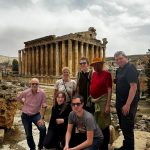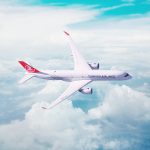YPT Tours to Rwanda
YPT has been offering Rwanda tours since 2023, as part of our wider East Africa Combo Tour which takes in Burundi, DR Congo, and Uganda.
Once one of the most dangerous and unstable countries in the world, Rwanda, the “Land of a Thousand Hills”, has been described as “the Singapore of Africa” in recent years due to its small size, orderliness and dynamic economy. Rwanda is a country on the rise, with a focus on conservation and sustainable tourism.
Rwanda boasts breathtaking scenery, with the volcanic peaks of the Virunga Mountains giving way to the lush rainforests of Nyungwe National Park that are home to some of the world’s last mountain gorillas. It is an incredibly fascinating country filled with tragic history, incredible nature and lovely people!
Group Tours to Rwanda
Currently, you can travel with YPT to Rwanda on our East Africa Combo Tour, that operates at least annually and allows you to see Rwanda alongside the complementing countries of Burundi, DR Congo, and Uganda. These states all have overlapping cultural, historical, and economic ties with each other, so it is a great opportunity to experience them all on one trip with YPT.
East Africa Combo: Burundi, DR Congo, Rwanda, and Uganda – March 7th– 16th / 20th 2025 – €1845 / €3995 / €5295
Independent Tours to Rwanda
If your availability does not align with the scheduled tour dates, then YPT can organize a private tour for you. We will plan according to your timeframe and budget and can even craft a bespoke itinerary based on your interests. Prices depend on the number of people and what level of accommodation you desire, but YPT can arrange everything you need for perfect independent Rwanda tours.
Below is an example Rwanda itinerary can be extended or combined with other activities to create independent Romania tours.
Example of a Rwanda Itinerary (8 days)
Day 1 – Arrive in Kigali
- Start your tour after breakfast at our cozy guesthouse located in Kigali’s central Kacyiru district. Kigali International Airport is well connected, with daily direct flights from Europe, the Middle East and across Africa.
- Visit the Presidential Museum, now an art gallery located within the remains of the former presidential palace. President Habyarimana’s plane crashed here in 1994, and there is still wreckage on the site.
- Have lunch at the Inzora Rooftop Café – a beautiful coffee shop selling quirky books with the best view of Kigali!
- Afternoon at the Kigali Genocide Memorial, a sobering but necessary visit to learn about the 1994 Genocide Against the Tutsi. The remains of 250,000 people are interred here.
- Dinner at Now Now Rolex, which specializes in gourmet versions of the Ugandan street food classic, the Rolex. They also serve excellent craft beers!
- Overnight in Kigali.
Day 2 – Kigali
- Have breakfast at your guesthouse, and then drive across the city to the Kimoronko market, one of the most vibrant and colourful in Eastern Africa.
- On the way to lunch, stop by the memorial to the Belgian Peacekeepers Memorial. The memorial honours 10 Belgian peacekeepers killed on the first day of the 1994 genocide.
- Lunch at the 1000 Hills Distillery, the first gin company in Rwanda. They serve Western dishes with a Rwandan twist and excellent cocktails!
- Drive 45 minutes outside of Kigali to visit the Nyamata Genocide Memorial, a church in which 50,000 Tutsis were massacred. The church has deliberately been left as it was in 1994, as a way to honour the victims.
- Transfer back to Kigali and have dinner at the Sundowner restaurant, which specializes in traditional Rwandan and African cuisine.
- After dinner, you may choose to take a Moto to our next destination. Also known as Boda-Bodas, these taxi-motorbikes are the quickest and most exhilarating way to get across Kigali.
- Evening visit to the CocoBean Nightclub, where the peak of Kigali society hangs out. Expect to rub shoulders with politicians, ambassadors, and entrepreneurs!
- Overnight in Kigali.
Day 3 – Kigali – Nyanza – Butare (Huye)
- An early breakfast and check-out of your hotel, before transferring to Butare. This trip should take around 3 hours.
- Stop off at the King’s Palace in Nyanza, the former royal capital. Here, you will learn about the period of Belgian colonization and the role of the Royal Family.
- In Nyanza, it may also be possible to meet with rescuers during the 1994 Genocide Against the Tutsi. These brave individuals hid those being hunted by the killers in their houses, always at tremendous personal risk.
- Continue to Huye and stop for lunch at a local restaurant.
- Afternoon tour to the Ethnographic (National) Museum, a spectacular building in its own right. A gift from Belgium in the 1990s, it was built in a traditional Rwandan style and houses the country’s most precious treasures.
- Check-in and overnight in your guesthouse.
Day 4 – Butare – Murambi – Butare
- Breakfast at your guesthouse and then transfer to the town of Murambi, an hour away. This drive will take you through some truly breathtaking scenery and will help you understand why Rwanda is called “the Land of a Thousand Hills.”
- Visit the Murambi Genocide Memorial, a former technical school where tens of thousands of Tutsis were massacred. This is one of the most traumatizing – but impactful – memorials in the world.
- Drive to the branch of the Ukuri Kuganze Association in Huye. Translating as “let truth prevail,” the organization is run by women who were both victims and perpetrators during the Genocide. You will be able to hear their stories, ask them questions, and support them by buying local crafts.
- Enjoy a packed lunch in the hills around Murambi.
- Rwanda is famous worldwide for its coffee, and you will be able to experience it from farm to cup. Go on a tour of the Huye Coffee Company and see the beans being roasted in a traditional style before tasting the final product.
- Have a quick walk around the campus of the University of Rwanda. While no longer the national capital, Butare remains the intellectual capital of the country.
- Dinner at the Chinese Restaurant that has excellent Chinese cuisine!
- Overnight at your guesthouse.
Day 5 – Nyungwe National Park
- Breakfast and check-out of your guesthouse. Drive to Nyungwe National Park (2 hours), one of the oldest rainforests in Africa that hugs the border with Burundi.
- Experience the breathtaking scenery of Rwanda by completing the Nyungwe Canopy Walk. Opened in 2010, this walkway will take you 60m above the forest floor and provides views of the entire national park and as far as Lake Kivu.
- Have either a packed lunch or eat at the park’s visitor centre before continuing your exploration of Nyungwe.
- There are several activities that you can choose from, including chimpanzee trekking, waterfall trails, or tracing the source of the Nile.
- Drive up further into the mountains and check in to your accommodation, the Kitabi Ecocentre. This is the only place you may be cold while in Rwanda and offers spectacular views of Nyungwe National Park. You may even stay in a replica of the King’s palace!
- Overnight at the Ecocentre, in the national park.
Day 6 – Nyungwe National Park –Kibuye – Lake Kivu
- Have breakfast and check out of the Ecocentre. Begin a drive across the country to the town of Kibuye (4 hours). Travelling on a road that sits between the mountains and Lake Kivu, this is one of the most fertile regions of the county and is movingly beautiful.
- Arrive for a leisurely lunch in Kibuye, a quaint beach town where Rwandans go for their vacations! Check in to your hotel, situated right on the beach.
- Spend the afternoon exploring Lake Kivu and its islands, a vast freshwater lake nestled between Rwanda and the Democratic Republic of Congo. As well as its beauty, it is known for its unique methane gas reserves that make this one of only two “exploding lakes” in the world!
- Enjoy a beach barbeque for dinner. Watch the sunset over the lake, with Congo usually being visible in the distance.
- Overnight in Kibuye.
Day 7 – Kibuye – Gisenyi
- After breakfast, continue your drive across Rwanda by following the road along Lake Kivu to Gisenyi (3 hours).
- Arrive in Gisenyi around lunchtime, one of the most fascinating places in Rwanda. As the city is adjacent to the Congolese border, many refugees have made Gisenyi their home, including genocide survivors, perpetrators, and their descendants.
- Have lunch at a restaurant downtown and begin to exploration of the Gisenyi. The town is dominated by the 3,470m Mount Nyiragongo, which lies just inside Congo. Despite being one of the most active volcanoes in the world, the lava flows have thankfully never reached Gisenyi.
- Visit the local market and chat with local people. The town has something of a Congolese feel to it, and it is common to hear Swahili spoken alongside Kinyarwanda.
- If you would prefer a more leisurely day, relax on the beach and take part in activities there. Swim in the stunning Minazi Cove, hire kayaks, or even take a speedboat ride!
- Have a celebratory meal on the lake’s shore, and overnight in your hotel.
- Overnight in Gisenyi.
Day 8 – Gisenyi – Kigali
- Have your breakfast on the hotel patio, and then begin the trip back to Kigali (3 hours).
- Stop en route at the Nyange Technical School Memorial. This is one of the most inspirational yet sad places in Rwanda, where a brutal massacre occurred in 1997. When Hutu rebels occupied the school, they asked students to identify their Tutsi classmates. They refused, proclaiming “We are all Rwandans,” and were massacred as a result.
- Arrive back in Kigali in time for lunch, where your tour comes to an end. Of course, more activities can be arranged in the city before your departure.
- Alternatively, continue your African adventure by joining us on one of our regular group tours on the continent. We can also arrange your private tour to continue into neighbouring Uganda, Tanzania, Burundi, or DR Congo.
Bespoke Rwanda Tours
As part of our travel packages within Eastern Africa, we can offer bespoke and independent Rwanda tours. These can be done as full Rwanda tours or be combined with other countries.
For more information on the following programs, simply get in touch.
Kigali City Tour
Virtually all visitors to Rwanda pass through its vibrant and cosmopolitan capital, so take advantage of your time with a city tour of Kigali. As an up-and-coming regional centre, the city represents “Rwanda in miniature,” and is both a popular hub for flights and conferences. Learn about the country’s profound history at the Kigali Genocide Memorial, stroll through the colourful Kimironko Market, or experience panoramic views from Mount Kigali.
Safari Tour
Despite being one of the smallest countries on the African mainland, Rwanda boasts four national parks and some of the best safari opportunities in the world. See some of the last Mountain Gorillas in Volcanoes National Park, while you can expect to see “the Big Five” amongst the savannah of Akagera National Park. Then, spend some time walking through the Nyungwe Forest and encounter chimpanzees.
Genocide Tour
A genocide tour of Rwanda provides a poignant and educational journey through the nation’s history. Visit significant sites like the Kigali Genocide Memorial, the Ntarama Church, and the Nyamata Genocide Memorial to learn about the 1994 Genocide Against the Tutsi. You will also be able to understand the country’s remarkable path to reconciliation and healing by visiting local NGOs and meeting with victims, rescuers, and perpetrators.
Gorilla Tour
Only three countries in the world can claim to host the endangered Mountain Gorillas in their natural habitat, and the lush forests of Volcanoes National Park allow you to see them up close. Start your tour in Kigali and drive three hours to the edge of the forest, either choosing to launch straight into a gorilla trek or settle into your stunning lodge. Over 99% of treks result in a sighting, so afterwards, you will want to go to Karisoke Research Centre and learn more about Dian Fossey and her efforts to preserve these incredible animals.
Filming in Rwanda
Through our media arm Pioneer Media, we can make arrangements for productions, journalists, or others, to film within Rwanda from big budget to guerrilla productions. We can also arrange meetings in country, as well as correct visas for journalist wishing to do projects within the country.
Frequently Asked Questions about Travel to Rwanda
Alternatively, if you are from one of the countries charged for the visa on arrival and plan to travel to neighbouring Uganda and Kenya, you will likely want to take advantage of the East Africa Tourist Visa. For 100 USD, you can visit all three countries as many times as you want in 90 days as long as you don’t exit to a third country.
One unique festival worth viewing is the Kwita Izina Ceremony in June when the country’s newborn baby gorillas are named. Commemorations related to the 1994 Genocide Against the Tutsi – Genocide Memorial Day on April 7th and Liberation Day on July 4th – are important but sobering affairs. September hosts the up-and-coming Rwanda Film Festival, while Christmas and Easter are big holidays like in the rest of the Christian world.
The biggest natural hazards are landslides, and although these seldom endanger tourists, they may delay travel. Visitors should stray away from conversations regarding Rwandan politics and opinions and comments about the 1994 genocide.
Unlike its neighbours (most notoriously Uganda), Rwanda has no laws criminalizing consensual same-sex relations. However, Rwandans are generally Christian and socially conservative, so it is recommended to keep your sexuality private while in the country. Public displays of affection are utterly inappropriate regardless of who is involved.
Plastic bags are strictly prohibited, and fines for importation are severe.
US Dollars and Euros can be exchanged easily, although smaller denomination notes fetch worse (5-10% less) rates. Other currencies are harder to exchange, although most things can be changed in Kigali for reasonable prices.
Due to the homogeneity of Rwanda’s population, foreign (especially European) languages are not used as a lingua franca. They are therefore not spoken widely in the way that they are in many other African countries.
In addition to Kinyarwanda, English, French, and Swahili are official languages. Due to being a former Belgian colony, French was historically used as the language of communication, business, and interethnic communication. Almost all educated older (and some younger) people speak French, but the current government is making a conscious effort to switch from French to English. This is because of the difficult legacy of the French language and the role of the French government in the 1994 Genocide. Swahili is sometimes used as the language of business with neighbouring Kenya and Tanzania, but fluency is rare.
Some younger people speak English, and the language is taught in schools, but proficiency is generally poor, however it is enough to get by.
We strongly advise having comprehensive travel insurance that covers medical expenses, including evacuation in case of severe illness or injury. Rwanda does have hospitals and clinics in major cities like Kigali, but medical services may be limited, especially in rural areas. We are not doctors, so we recommend talking to your medical professional and checking out our blog post, Seven Essential Health Tips for Globe-Trotters.
The Rwandan post, Iposita, is generally reliable, albeit slow. Stamps for postcards cost around 700 RWF and take an average of a month to reach Europe.
GALLERY
